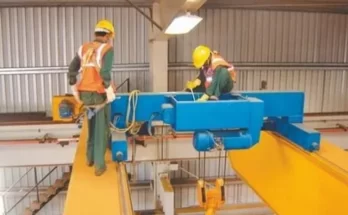Since the advent of industrialization and globalization, the importance of food for the survival of the human race has increased manifold as the food has now become a most precious commodity. A country is food secure where the food demand and supply are balanced in a way that food is affordable and accessible to all and it satisfies people’s basic right to food. The food insecurity refers to consistent inaccessibility of food due to lack of money and other resources. A household is considered food-insecure when its residents are malnourished and live in hunger or fear of starvation.
Malnutrition or malnourishment is a broad term which refers to eating a diet in which certain nutrients are lacking or in excess or in the wrong proportions. According to the World Health Organization, hunger and related malnutrition are the greatest single threat to the world’s public health. Women, children, and the elderly suffer more from malnutrition. Women are vulnerable because during pregnancies and breastfeeding, women have additional nutrient requirements.
About 52 percent of Pakistanis do not have access to adequate food and many of them (especially women and children) suffer from hunger and malnutrition. This was stated in a national consultative meeting of the National Chapter of Alliance Against Hunger and Malnutrition (AAHM Pakistan) in Islamabad on 3rd September, 2013 to discuss “Policy Perspective of Hunger and Malnutrition Situation in Pakistan”. The event was organized by the SCPOE (Society for Conservation and Protection of Environment) which is currently hosting the Secretariat of AAHM Pakistan. Participants across the country from NGOs, Government, UN agencies, Media and Academia discoursed to explore hunger and malnutrition solutions in Pakistan.
Pakistan has though been facing food security challenge since a decade but the country right now is passing through a critical situation in this regard. It appears that food accessibility is currently a serious issue as compared to food production or availability. Government’s food monitoring, pricing and distribution system is not satisfactory. On the top, food has remained a subject of politics. As a consequence, surplus food remains available in one part of the country but poor people are allowed to die of hunger at other part at the same time. Sometimes food is also perished and wasted in storehouses. Likewise, it has also been reported again and again in the media that a bulk of food was exported by the government or private sector despite food insecurity prevailing in the country. Food is then imported on public pressure which is often expensive and sometimes not fitting to the local needs about quality and the taste.
A concern is more often indicated that the policy making in Pakistan is done without long-term planning, determination or the political-will and that is why implementation of laws/regulations has always been a problem. The influential people have rather been found to be violating country laws by themselves.
Provision of secure food to its masses is the responsibility of state and hence, the Federal Government must steer the provinces to deal with food and nutrition issues in a well-planned and coordinated way. Government has to review its agricultural research & extension services; and the food procurement & support price policies in favor of general masses. Government must regulate food sector through strict laws and make sure that no more smuggling of food items or illegal food imports are allowed.
While gaps in food accessibility and its governance are quite visible, we however cannot ignore the quantity of food produced and its quality. The way the country’s population is growing up, food production is lagging far behind due to many factors; some of them are:
- The crucial role of women in agriculture and food management has been ignored over-time. Traditionally, women have been the main player in growing and acquiring food and managing food of the household level. Modern agriculture technologies, cash crops, monoculture and use of heaving machinery have restricted the role of women in agriculture and since then the hunger and malnutrition issues begin to increase.
- In equality in the society is also a cause of food injustice and it also needs to be addressed.
- Production and availability of diverse food crops is important for balanced nutrition and to reduce hunger; but the Government has so far been focusing on few food crops only i.e. wheat and rice.
- Urban dwellers as well as rural people have previously been producing food domestically. This activity has now been abandoned in cities and minimized to large extent in rural areas which has led to food insecurity across the country. Women need to be mobilized in this regard as they can potentially play great role in producing food domestically and to sustain food security at the household level.
- Cultivable land is on decrease due to alarming rate of urbanization. New housing colonies are being developed on fertile urban-periphery lands that were traditionally being cultivated to provide fresh food to the urban dwellers.
- Due to extraordinary cost of production, small farmers are walking out of the agriculture activity and migrating to urban areas. Local feudal landlords are purchasing their lands resulting into land concentration, especially in Sindh and South Punjab. Small farmers have been very important as they were traditionally involved in food production as compared to large farmers who tend to grow market driven cash crops only.
- Feudal landlords usually lease-out their lands to contract or corporate farmers and the agri-investors usually invest money on non-food cash crops i.e. cotton, sugarcane, tobacco, kinoo, oil seeds, grass, etc. leading to food shortages and malnutrition in the country.
- Practice of traditional “lungar” and “khairaat” has also been a source of food for marginalized people in our society. The practice however is declining over-time due to economic crisis at the local level and this is also contributing to hunger and malnourishment among poor people.
- Food storage caused by the hoarders is also a source of food shortages and price hike at times. Government must regulate the situation and control fake food shortages and price hike in the market.
- Efficient families are always food secure; currently the economic pressures on families are also resulting into food insecurity. Livelihood diversity and capacity building of the rural/urban communities in processing and preservation of food is important to cope with food shortages and malnutrition at times.
- Quality of food has already been deteriorated due to chemical intensive farming (use of pesticides/fertilizers). Modern agricultural technologies have affected the aroma, taste and the culture of food. Food contaminated with agro-chemicals have had a severe health impacts including cancer, high BP, asthma, skin problems, reproductive health complications, eye infections, headache, etc.
- Modern agricultural practices have also eliminated local food varieties and the uncultivated food plants. Earlier, the communities have commonly been using uncultivated food plants as part of their routine diet that were nutritious and a free gift from the nature. Consequently, we are now deprived of this free or very cheap source of food and nutrition.
- Food consumption behavior has also been corrupted and the people now waste enormous food. If food distribution system and the patterns of food consumption in our society are somehow rationalized, there is enough food already being produced and available all over the world.
- Land Grab and the corporate farming policy is being followed since the Musfaraf’s regime which is feared to aggravate the food security situation in the country in future. Gulf countries have allegedly acquired large farms i.e. in Matiary, Thatta, Nawabshah and Mirpurkhas districts of Sindh where they grow non-food crops for export purposes. The same lands were previously cultivated to produce food crops.
Recommendations:
- Eliminating hunger and malnutrition cannot be done by the governments alone; this must involve coordinated actions by the civil society. The civil society organizations (CSOs) should find innovative ideas to tackle with this menace with or without the help of Government.
- CSOs should focus their advocacy on Right to Food issue that should cover: respect for right to food; fulfillment of right to food; protection of right to food; and promotion of right to food.
- Climate change is now contributing to uncertain food production and lower food quality. Planning and adaptations must be done accordingly to maintain the food production levels. Resilience has to be built among communities to cope with climate change impacts.
- Alternate food safety mechanisms are needed in the country to increase community-resilience towards food insecurity and climate change challenges. Capacity of rural communities must be built to produce food domestically and preserve food for the odd times.
- Early warning system must be adopted to save people from climate change impacts and it should be practiced with policy support. Mobile SMS service should be used for early warning system and to provide other agriculture related guiding messages to farmers and the local community.
- Food injustice at the household level should also be considered and addressed because usually the women and children remain malnourished.
- Media must be involved so that media could play its due role in awareness raising and policy advocacy. Close contact with concerned officials of media channels would be very fruitful.
- International trade agreements are affecting the food sovereignty of the country as the free market now determines prices as well as demand/supply (import/export) system. Pakistan has to be very proactive in all such international trade negotiations to avoid any compromise on country’s food sovereignty.
- Pakistan is bestowed with diverse topography and ecological zones. Hence, each region must be dealt separately as the local needs, strengths and opportunities might also be different.
- Agroforestry is a useful activity from environment point of view. It is recommended that diverse fruit tree should be incorporated in the agroforestry model and fruit trees should be planted on farm sides, banks of canals and inside homes so that deprived community members could also have free access to locally available fresh fruits.
- The way the India has recently passed the Food Security Bill in the parliament; Pakistan should also follow this so that food security of most vulnerable members of the society is protected.
- The multi-national agri-corporations such as Monsanto are now trying to acquire licenses to produce genetically modified food which might upset health of consumers and pollute the physical environment. GM foods are already banned or restricted in many countries. Organic food is however the best and sustainable option available that needs heterogeneous ecological farming.
- Research has so far been based on preset approach or following the international models. Indigenous and participatory research is strongly recommended to find the gaps in food demand/supply and the government policies at all levels. Advocacy by CSOs therefore must be aimed at bridging gaps in policies and practices in the country to be more effective and result oriented.
- The civil society forums such as AAHM Pakistan should prioritize one or few most burning issues of food every year and devise action plan for one year. CSOs must involve existing research institutions for research and they themselves should rather be focusing on community awareness, mobilizations and the advocacy.
Tahir Hasnain is a veteran researcher, writer and development practitioner serving the non-government development sector consistently from two decades. Currently he works with Shirkat Gah as Programme Manager, Environment & Livelihood. He can be contacted at – tahir@khi.sgah.org.pk




